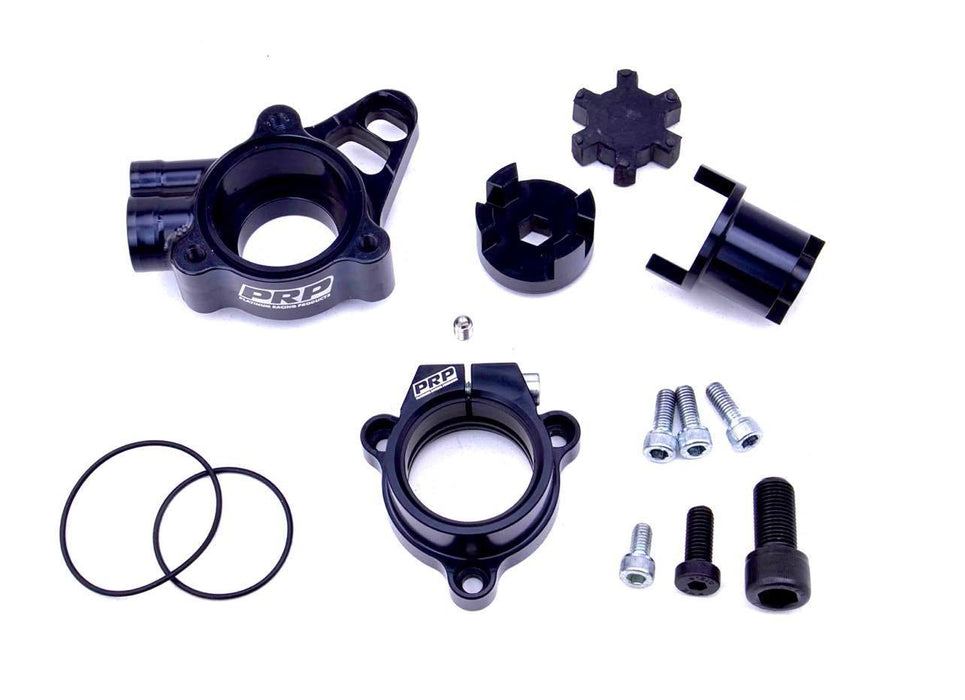In the realm of automotive engineering, fuel pressure pumps play a pivotal role in ensuring the efficient and reliable operation of internal combustion engines. These unsung heroes are responsible for maintaining the optimal fuel pressure required for the engine's performance, making them an indispensable component in modern vehicles. In this article, we will delve into the intricate workings of fuel pressure pumps, exploring their function, importance, and the impact they have on the overall performance of an engine.
- The Basics of Fuel Pressure Pumps:
Fuel pressure pumps, also known as fuel pumps, are mechanical or electrical devices designed to deliver a steady flow of fuel from the fuel tank to the engine. Their primary function is to generate and maintain the required pressure within the fuel system, ensuring a consistent supply of fuel to the engine's combustion chambers. - Fuel Pressure Pump Types:
a. Mechanical Fuel Pressure Pumps:
Mechanical fuel pressure pumps, commonly found in older vehicles, are driven by the engine's camshaft or a separate eccentric shaft. These pumps utilize a diaphragm or a piston to create the necessary pressure. While reliable, they are limited in their ability to provide high-pressure fuel delivery.
b. Electric Fuel Pressure Pumps:
Electric fuel pressure pumps, on the other hand, are the preferred choice in modern vehicles. Driven by an electric motor, these pumps can generate higher fuel pressures and offer greater flexibility in terms of placement within the fuel system. They are typically located inside the fuel tank, submerged in fuel for cooling and noise reduction.
- The Function of Fuel Pressure Pumps:
a. Fuel Delivery:
The primary function of a fuel pressure pump is to deliver fuel from the tank to the engine. By maintaining a consistent pressure, the pump ensures that the engine receives an adequate supply of fuel for combustion, regardless of variations in engine speed or load.
b. Pressure Regulation:
Fuel pressure pumps also play a crucial role in regulating the fuel pressure within the system. They are equipped with pressure regulators that adjust the pump's output to match the engine's requirements. This ensures that the fuel pressure remains within the optimal range, preventing fuel starvation or flooding of the engine.
c. System Priming:
During vehicle startup, the fuel system may lose pressure, making it difficult to start the engine. Fuel pressure pumps help overcome this challenge by quickly priming the system, restoring the required pressure for smooth engine ignition.
- Impact on Engine Performance:
The function of fuel pressure pumps directly impacts the overall performance of an engine. Here are a few key aspects:
a. Fuel Efficiency:
Optimal fuel pressure ensures efficient combustion, maximizing fuel efficiency and reducing emissions. Fuel pressure pumps help achieve the ideal air-fuel mixture, promoting complete combustion and minimizing wastage.
b. Power Output:
In high-performance engines, fuel pressure pumps are critical for delivering the required fuel volume and pressure to support increased power output. Insufficient fuel pressure can lead to a loss of power and compromised engine performance.
c. Reliability:
Reliable fuel pressure pumps are essential for consistent engine operation. They prevent fuel starvation, which can cause engine misfires, stalling, or even engine damage. Proper maintenance and regular inspection of fuel pressure pumps are crucial for long-term reliability.
Conclusion:
Fuel pressure pumps are the unsung heroes of the automotive world, silently ensuring the smooth and efficient operation of internal combustion engines. Their vital function in delivering and regulating fuel pressure directly impacts engine performance, fuel efficiency, and overall reliability. Understanding the role of fuel pressure pumps empowers us to appreciate their significance and underscores the importance of regular maintenance to ensure optimal engine performance.
About Author
You may also like
-
Top Mistakes to Avoid When Using a Canned Food Labeling Machine
-
How to Select the Right Vacuum Suction Unit for Chemical Applications in Industrial Projects
-
How to Choose an ISO Certified Automotive Starter Manufacturer for Reliable Bulk Supply
-
How to Select the Right Vacuum Suction Unit for Chemical Applications in Industrial Projects
-
What Buyers Should Know Before Ordering Custom FR4 Fiberglass Boards

